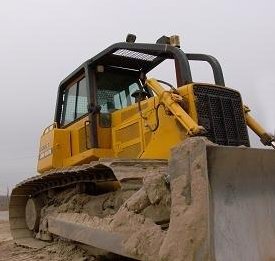
|

|
Forum Index : Windmills : Anemometer
| Author | Message | ||||
MacGyver Guru Joined: 12/05/2009 Location: United StatesPosts: 1329 |
Crew: Anyone know a quick-'n-dirty way to make an anemometer from a pancake fan? . . . . . Mac Nothing difficult is ever easy! Perhaps better stated in the words of Morgan Freeman, "Where there is no struggle, there is no progress!" Copeville, Texas |
||||
Downwind Guru Joined: 09/09/2009 Location: AustraliaPosts: 2333 |
The cogging effect of the iron core of the fan makes them next to useless, if they were a practical solution we all would have done it years ago. The problem is it takes a gail force to over come the cogging before they work. If you want to flog a dead horse idea, then they are basically a 3 phase generator like any mill, and its just a matter of counting the frequency from 1 or 2 phases to establish a rpm then calibrate it to wind speed. It depends on the end requirements but a hand held meter from China is under $10.00 if all you want is a spot reading. Pete. Sometimes it just works |
||||
MacGyver Guru Joined: 12/05/2009 Location: United StatesPosts: 1329 |
Thanks, Pete What I "want" is a little thingy I can mount on the peak of my barn roof that will send the wind direction and speed information down to my shop. I have a bunch of what I call pancake fans, but to tell you the truth, several are pretty large diameter, like 8" so I thought maybe there was an easy way to calibrate the meager current manufactured as it is spun by the breeze. I could just buy one on Amazzon for not too much, but where's the fun in that? You now me; I gotta reinvent the wheel! 
. . . . . Mac Nothing difficult is ever easy! Perhaps better stated in the words of Morgan Freeman, "Where there is no struggle, there is no progress!" Copeville, Texas |
||||
Madness Guru Joined: 08/10/2011 Location: AustraliaPosts: 2498 |
Can you round off the stator in one of those fans to reduce the cogging the same as you do with an F&P motor? There are only 10 types of people in the world: those who understand binary, and those who don't. |
||||
Downwind Guru Joined: 09/09/2009 Location: AustraliaPosts: 2333 |
[quote] You now me; I gotta reinvent the wheel! [/quote] There comes a time that chiseling the round corners off the Volvo wheels to make square tires will not work well 
For all the effort to make a anemometer and calibrating it, if you can find a cheap ready made one i would go that way. From what i remember electronics is not a strong area for you and there is a bit involved to display the data in actual speed. Some use a bike meter for the display, but it still needs calibrating in someway. All said, i have not seen any mountable cheap anemometers on the market, lots of cheap hand held ones, but they are useless for a mounted application. Pete. Sometimes it just works |
||||
fillm Guru Joined: 10/02/2007 Location: AustraliaPosts: 730 |
Mac , these would be the cheapest I have come across,VORTEX as Pete has said some stuff is just not worth the time and effort and what you end up with is soon discarded especially if you are not savy with all the electronics. But if it is a weather station you want that can log some data then you will not go past a Davis Vantage Vue "HERE , they might be a bit more but you get a lot more bang than others near that price that give you a right headache setting up and trying to get them to transmit. PhillM ...Oz Wind Engineering..Wind Turbine Kits 500W - 5000W ~ F&P Dual Kits ~ GOE222Blades- Voltage Control Parts ------- Tower kits |
||||
mac46 Guru Joined: 07/02/2008 Location: United StatesPosts: 412 |
I have to agree with Film on this one...and the more accurate the information the better on this application. Jusy my 2 cents worth. Mac46 (Hello and are you settled in yet?) I'm just a farmer |
||||
| Don B Senior Member Joined: 27/09/2008 Location: AustraliaPosts: 190 |
Hi Mac, Once you can work out how to count the speed at which they are turning, a cup type anemometer is one of the simplest - hence their popularity, I suppose. So long as you have minimal bearing friction, and certainly no cogging from an iron core, cup types operate in a pretty linear fashion. Their speed of rotation is proportional to the distance of the centre of the cup from the pivot. The centre of the cup therefore travels effectively at very close to wind speed. This means that, if you built one with a distance from the pivot point to the cup centre of, say, 159 mm, the diameter of the circle that the cup centre sweeps out would be one metre and, in a one metre per second wind, it would rotate at very close to 1 turn per second. I have built a cup type anemometer using 3 plastic coffee spoons, and the bearings (but not the innards) from a miniature electric motor. The first sensor that I tried was a reluctor (vane) type as you might find in a (non points type)car distributor, but even it caused some cogging. I then used an LED and photo transistor scanning through a disc on the shaft with a series of holes in it , and this was much more successful. Then comes the problem of converting the pulses into a read-out,which can be a stumbling block, although there are several inexpensive counters on the market. But then, I suppose that there are also several relatively inexpensive "weather station" wind speed indicators on the market with these problems already solved, although these obviously take the challenge out of it. I think that the previous comments about cogging would rule out using a pancake fan, but you might be able to use a minature high speed brush type electric motor as a DC generator using a resonable size multi blade pancake fan blade to drive it. Like anything with any cogging, it might take a bit to start but, once running, should be able to drive a meter in a reasonably linear fashion. Then all that you need to do is to sort out the tail, pivot, slip rings, and calibrate it. Regards Don B |
||||